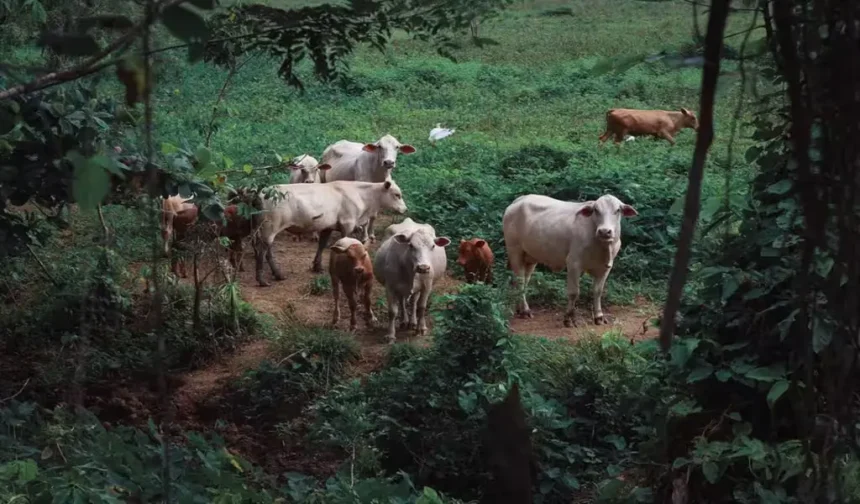After a case of foot-and-mouth disease was confirmed in the UK, Germany has been prohibited from exporting pigs, sheep, and cattle.
On Tuesday, the government declared it will stop approving health certificates for animals, fresh meat, and animal products at risk of the disease to curb its spread to the UK, which currently has no confirmed cases.
Although foot-and-mouth disease poses no threat to humans or food safety, it is highly contagious in hogs, sheep, and cattle, as well as other cloven cattle and
The United Kingdom experienced significant epidemics of the disease in 2001 and 2007, resulting in the slaughter of millions of livestock animals throughout the nation.
Agriculture minister Daniel Zeichner declared that the government stands prepared to take necessary measures to safeguard our nation’s producers against the threat of foot-and-mouth disease.
UK Government Takes Action to Protect Farmers from Foot-and-Mouth Threat
He further stated, “To prevent an outbreak, restrictions have been implemented immediately on animal products from Germany. If the disease continues to spread, we will not hesitate to include additional countries in the list.”

“We will continue to keep the situation under review, working closely with the German authorities.”
Foot-and-mouth disease is a legally notifiable disease, meaning failing to report a case to the government is a criminal offence.
The disease could have broader economic implications, including losing access to foreign markets for animals and their subsequent products and the culling of animals. Farmers affected by the disease may also experience a decrease in milk production.
The public and private sectors incurred billions of dollars in costs due to significant outbreaks in 2001 and 2007.
Cattle affected by the disease show symptoms such as lameness, fever, loss of appetite, and blisters or sores on their hooves, mouth, and tongue.
Lameness and blisters are the most common symptoms observed in sheep and swine.
Dr Christine Middlemiss, the Chief Veterinary Officer of the United Kingdom, has requested that “livestock keepers exercise the utmost vigilance for signs of disease, follow scrupulous biosecurity, and report any suspicion of disease immediately to the Animal and Plant Health Agency.”
To enhance the protection against animal disease, the government has recently invested a £200 million in the UK’s primary research and laboratory testing facilities at Weybridge.

Salman Ahmad is known for his significant contributions to esteemed publications like the Times of India and the Express Tribune. Salman has carved a niche as a freelance journalist, combining thorough research with engaging reporting.














